On 29 August, CTLE held the Autumn Half-Day Professional Development Workshop themed ‘Digital-Age Learning’. The programme started with a welcome note by Prof. Lionel NI (VRAA), who invited us to think about how to engage and stimulate students of digital age. Prof. Ni also noted the progress of MOOC/SPOC work carried out by various UM members from FAH, FED, FSS and FST.
Dr. Vanessa Theme AMENT, Edmund F. and Virginia B. Ball Endowed Chair of the Department of Telecommunications, Ball State University, gave a plenary session entitled ‘Personable Learning: A Teacher-Centered Pedagogy for Empowering 21st Century Students’. Dr. Ament shared theories, tips and techniques she had developed for a MOOC that enrolled over 26,000 students. Using a pedagogical approach called ‘personable learning’, Dr. Ament advocated for hands-on and immersive approach to teaching (even in large-scale settings) that would avoid individualization and learner isolation typical of ‘personalized learning’ in favour of a more collaborative and collective approach that would bring teachers and peer learners into a dynamic ecosystem of engagement and interaction. Additionally, she shared with the audience six highly-adaptable strategies in running a MOOC:
- Introducing the Instructor & Breaking the Ice
- Finding an Easy-to-Follow Framework
- Working Towards a Common Goal
- Building a Cooperative Community
- Encouraging Curiosity and Play
- Optimising a Course for Device-Independence
In the panel session ‘UMx: Challenges and Opportunities’ moderated by Prof. Katrine K. WONG (CTLE/FAH), Prof. Hong Gang JIN (Dean of FAH), Mr. Miguel COSTA (FST) and Prof. Michael LI (FED), shared some of their experience and insights in MOOC building: optimal features in terms of design and structure of video units, graphics and animation were shared; issues regarding multiple learning platforms (for example, Moodle and XuetangX.com) were discussed; the importance of planning one’s material and rehearsing one’s deliveries was stressed. All speakers shared two observations: pre-filming preparation (including story-board design) was vital; A/V equipment currently available at CTLE’s mini-studio and multi-function room have satisfied their production needs. CTLE always welcomes suggestions from colleagues involved in and interested in MOOC work regarding A/V equipment and editing software.
In the concluding session, three speakers introduced tools which could be used to facilitate group work or active learning strategies:
- Prof. Jinjuan Ren (FBA) introduced ‘team builder’, a new tool that would help instructors create effective groups. The ‘team builder’ tool is a new addition to UMMoodle and looks useful.
- Prof. Si Man Lei (FED) showed how Rain Classroom, a new digital learning platform, could be used to increase interaction with students and to share PowerPoint slides. Rain Classroom software requires that instructors have a computer with Windows OS and that students have a WeChat account.
- Dr. Chris Fulton (CTLE) demonstrated how two tools might be used for active learning activities. One free tool, Kahoot, enables teachers to present quiz questions which students answer on their phones. Dr. Fulton also led an activity that demonstrated how a ‘media collection’ activity in UMMoodle could be used to enable students to give one another feedback.
澳門大學教與學優化中心(下稱優化中心)日前舉行了教師發展半日工作坊(秋季),吸引50多位來自不同學院的教學人員參加。是次工作坊主題為〝數碼時代的學習〞,邀請了來自美國波爾州立大學的Vanessa Theme AMENT 博士以〝個人學習:以教師為中心的授權教育法〞為題進行演講,分享了對慕課教學的看法。
澳大副校長(學術)倪明選致歡迎詞時表示,希望教職員思考如何在數碼時代鼓勵和啟發學生學習,他也簡單介紹了不同學院的慕課課程制作進度。
AMENT 博士分享了她為近26000名學生所制作的慕課課程的理論、心得和技巧。她倡導實踐和沉浸式教學法,認為這教學法能避免學生在進行慕課學習時被孤立,更幫助師生在學習上具團隊合作精神,加強教與學的互動。
工作坊上,由優化中心主任王嘉祺、人文學院院長靳洪剛、科技學院Miguel COSTA和教育學院李自豪組成的座談小組,分享了他們建立慕課課程的經驗和見解。工商管理學院任錦娟、教育學院李思敏及優化中心Chris FULTON則分享了能支援團隊合作、互動教學的新技術。
教師發展半日工作坊每學期舉辦一次,旨在通過對澳大教學人員提供優秀教學經驗分享、不同教學模式見解,以促進教與學交流,並幫助他們優化教學。
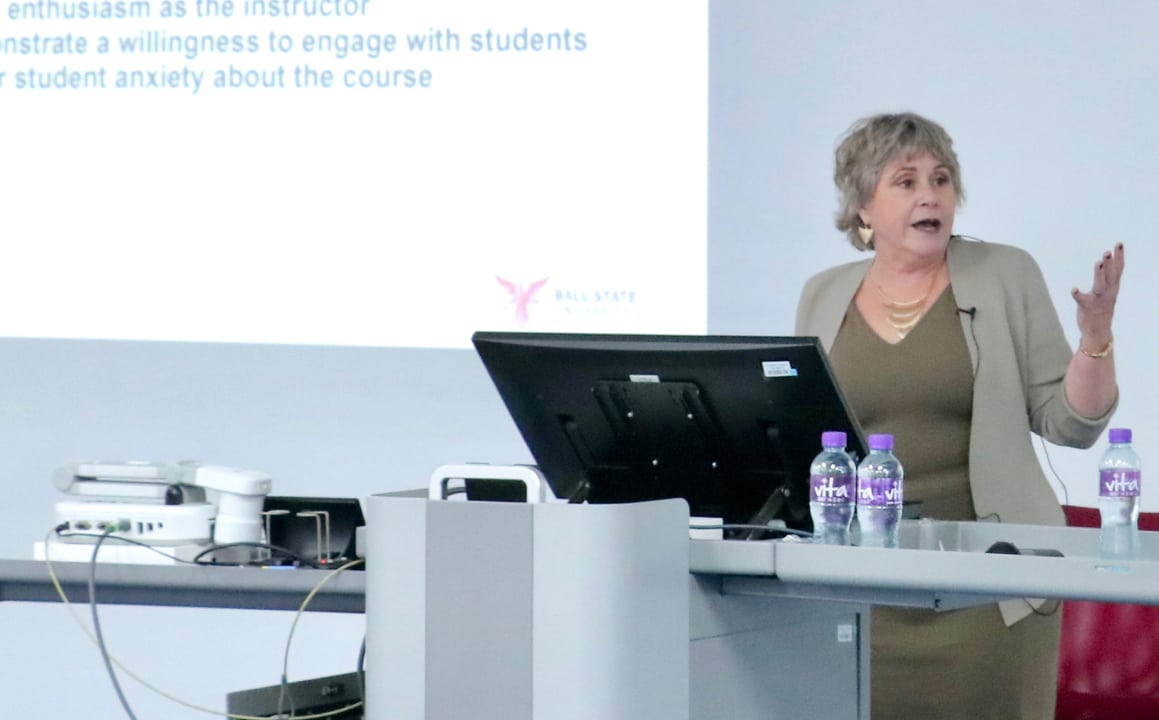
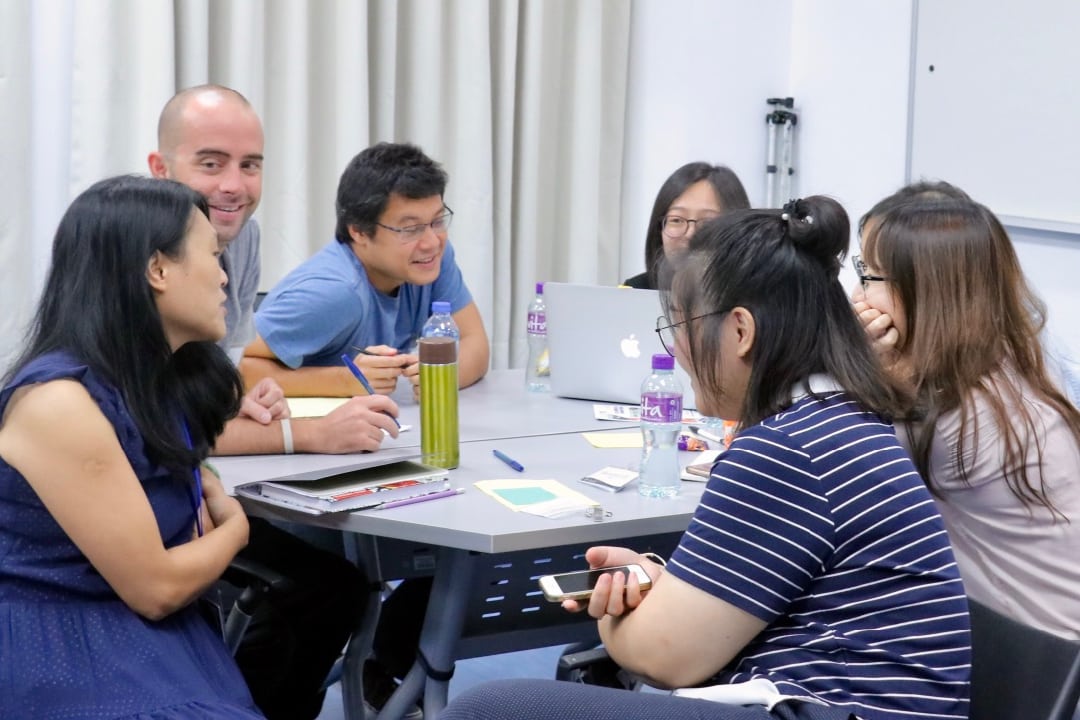
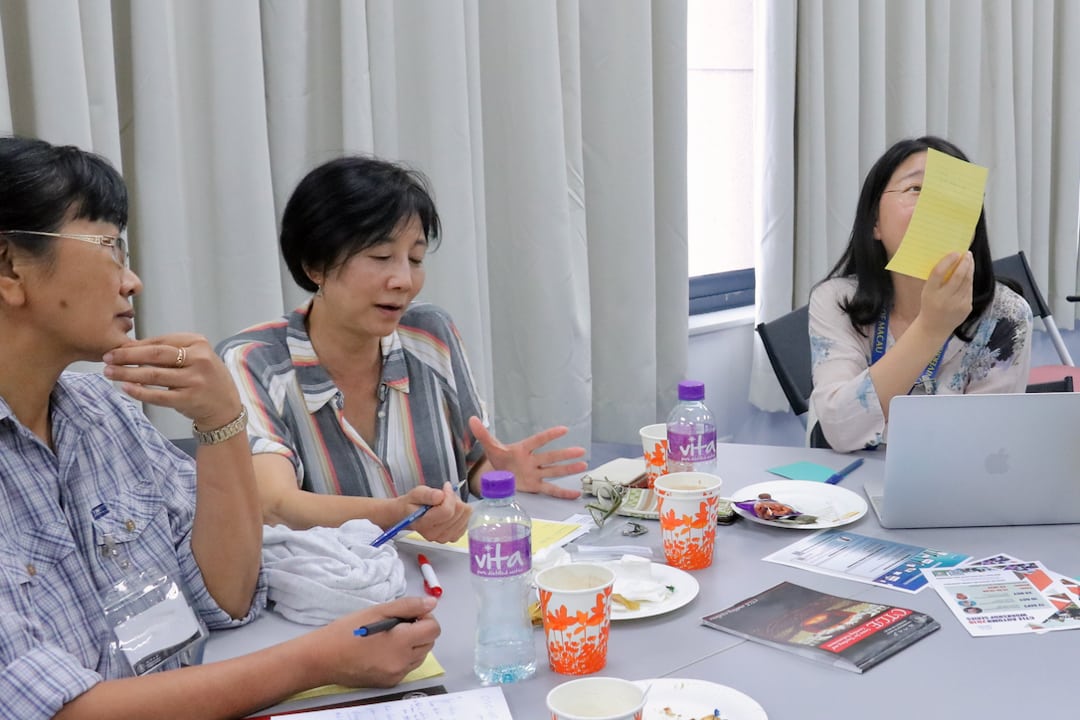
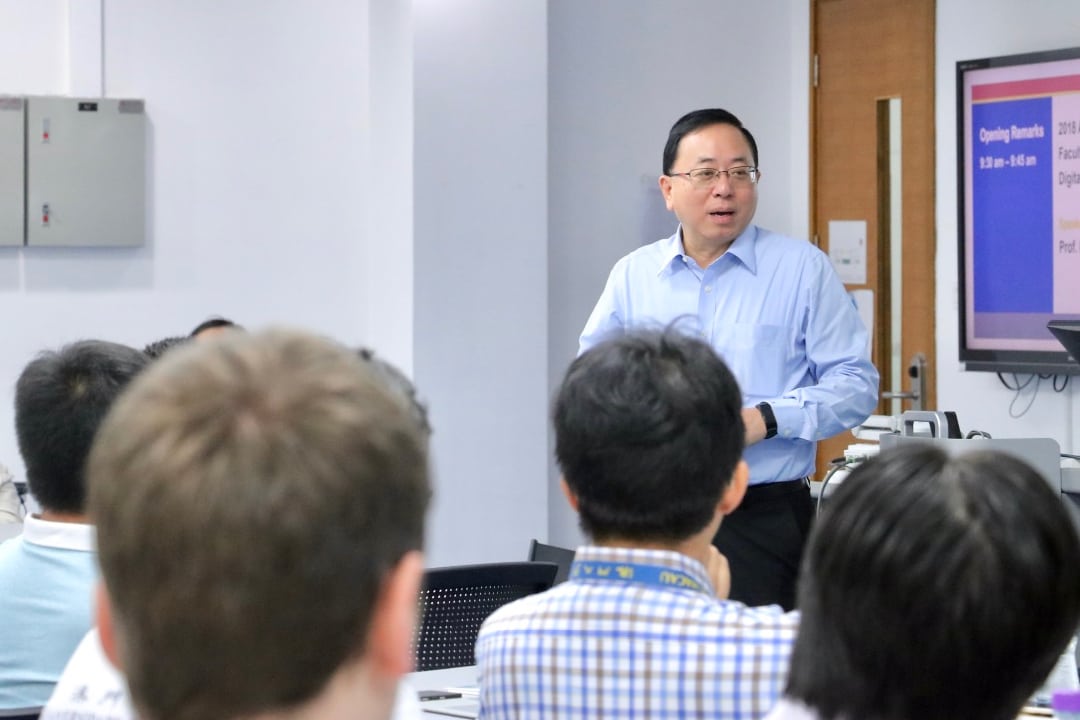
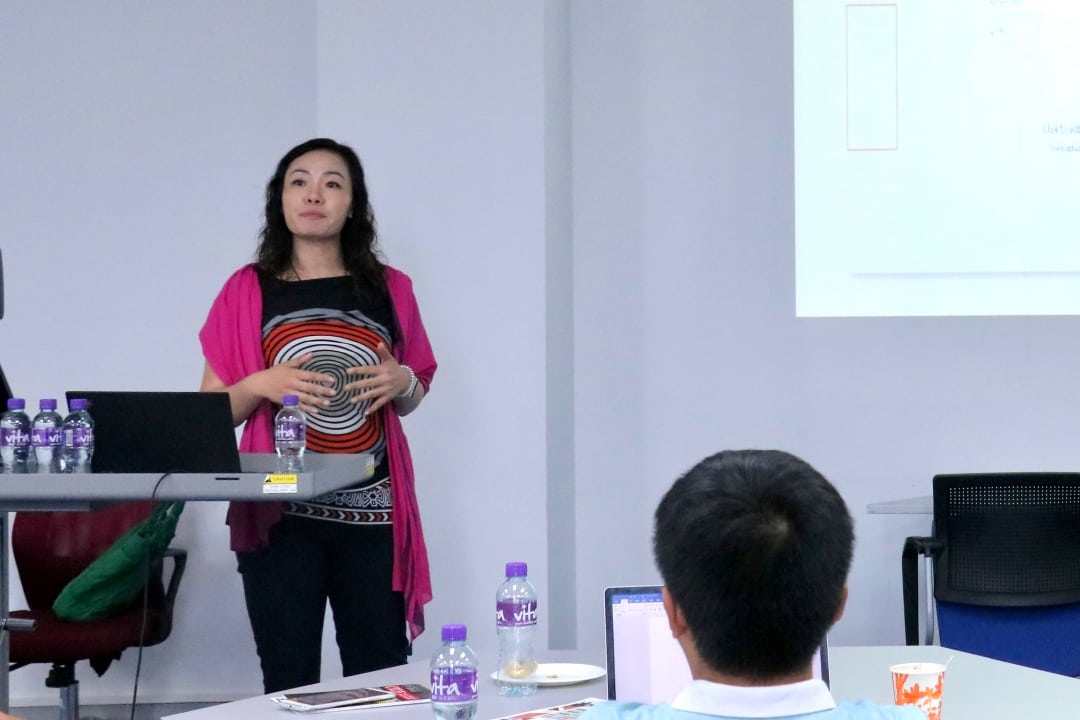
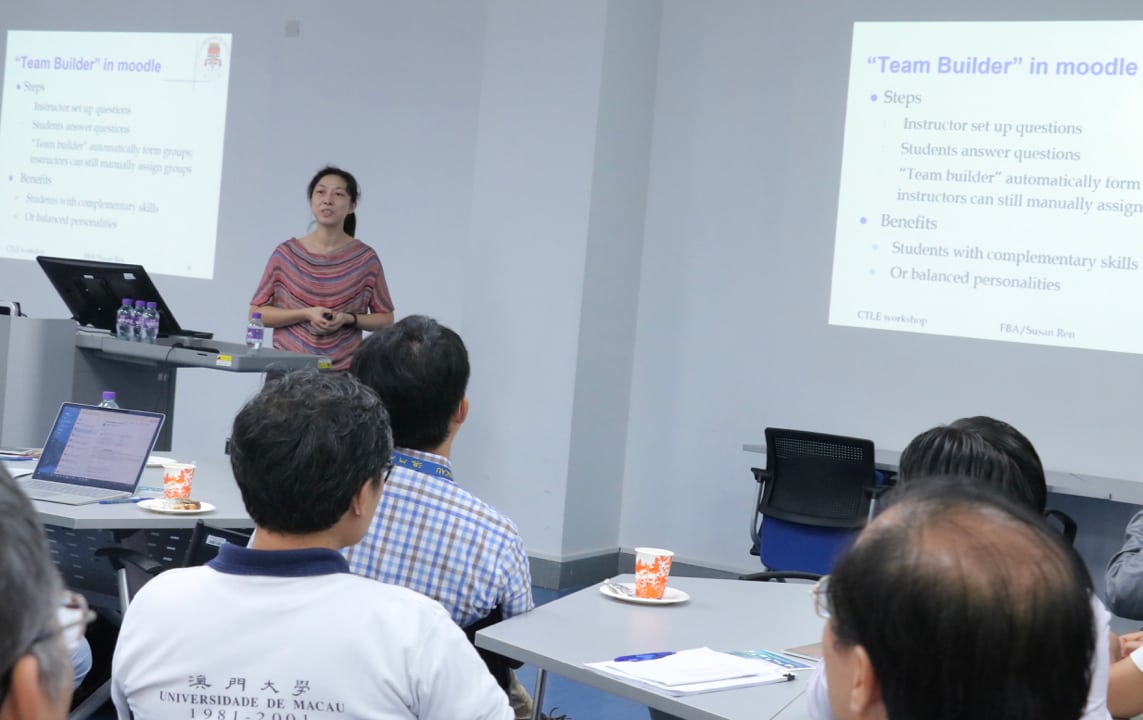
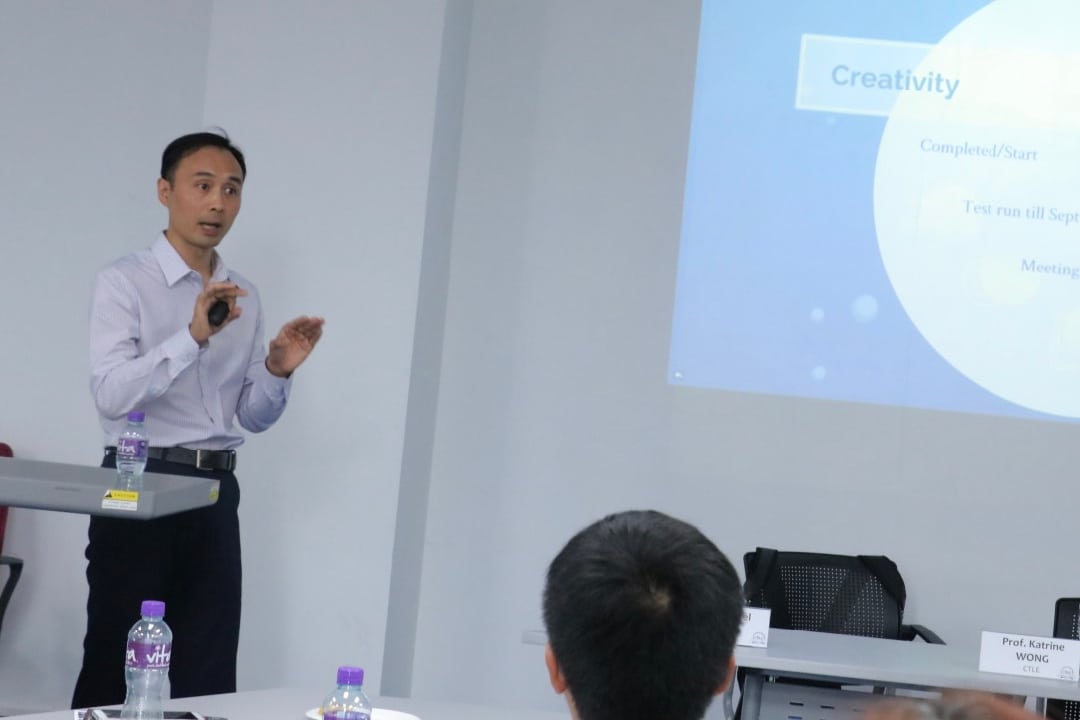
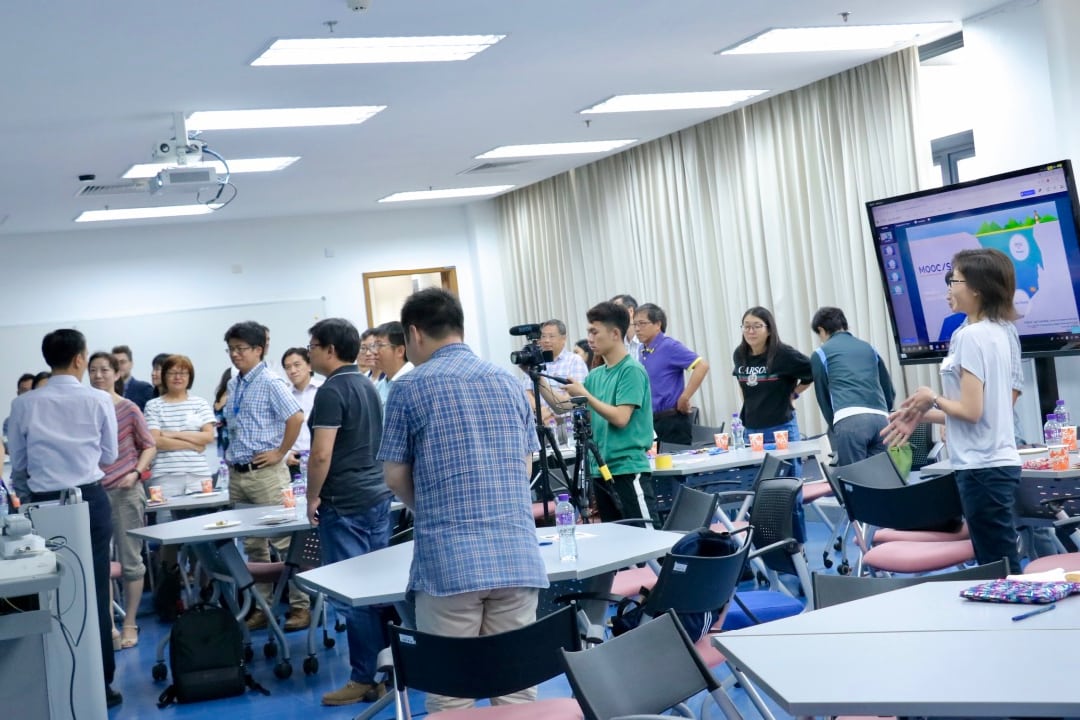
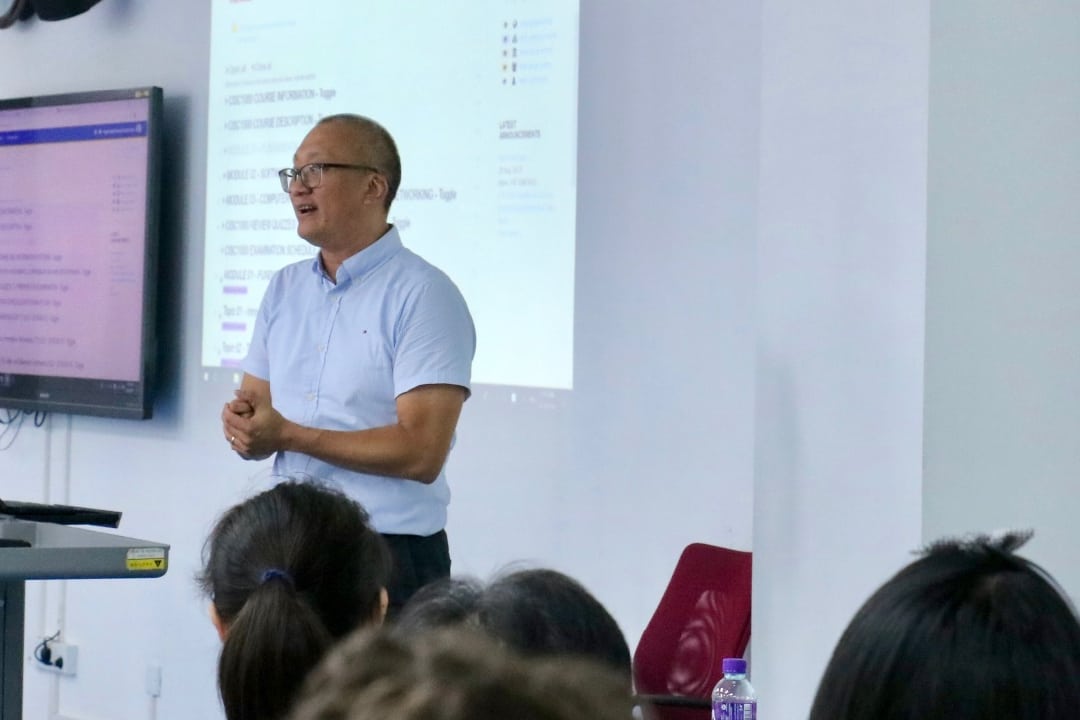
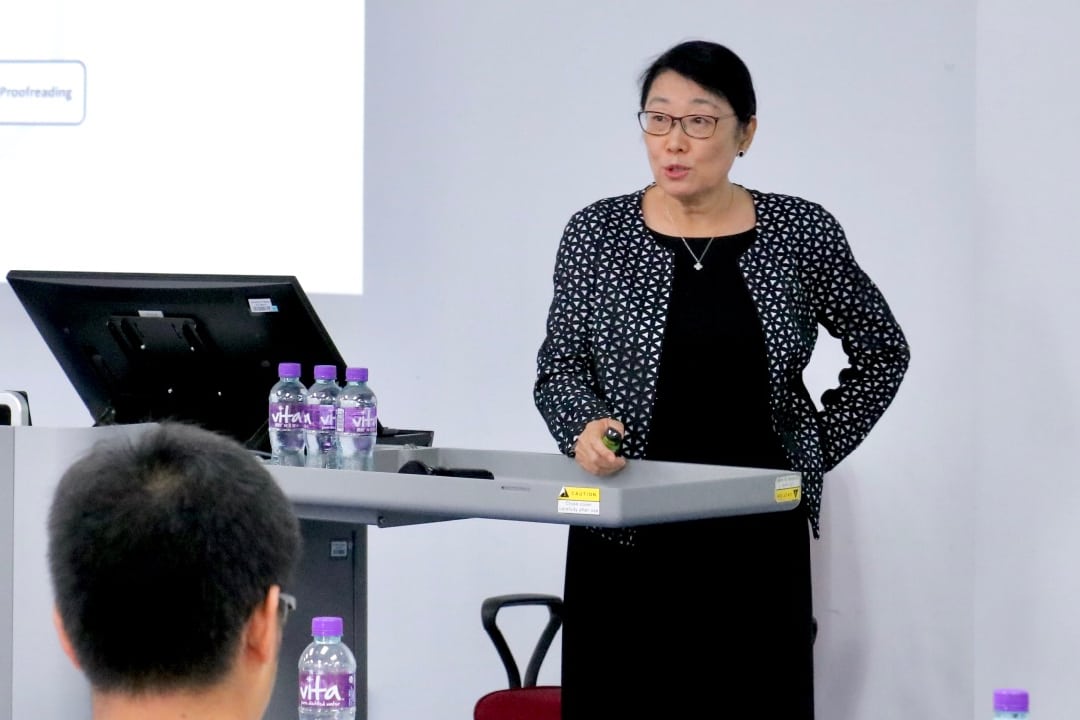
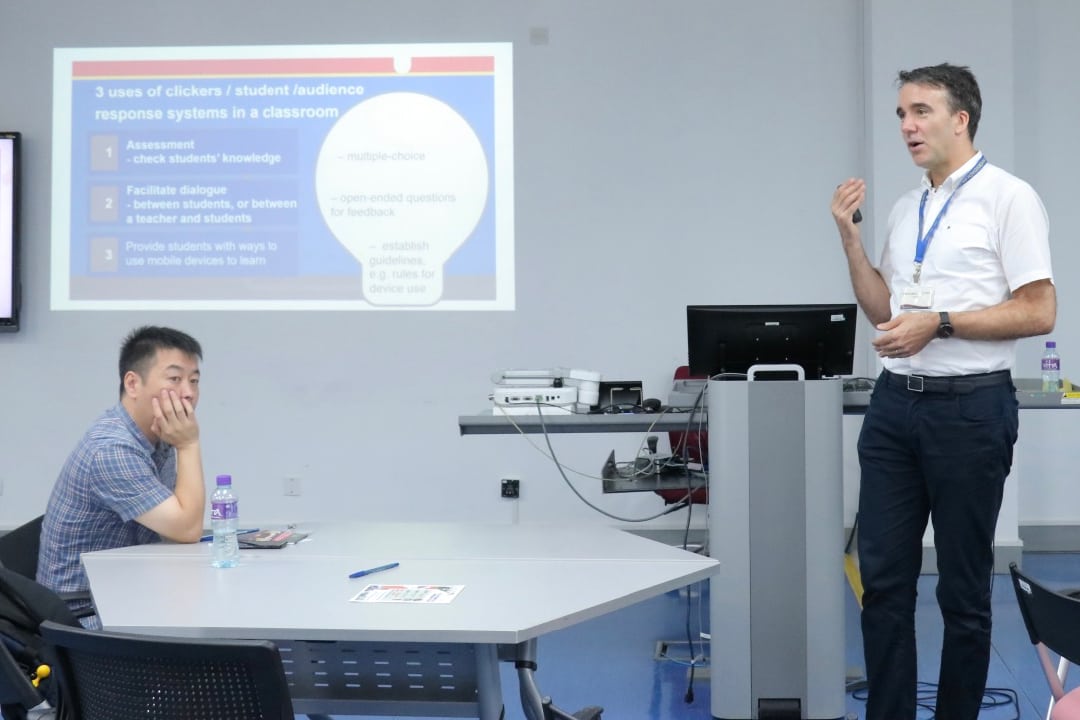
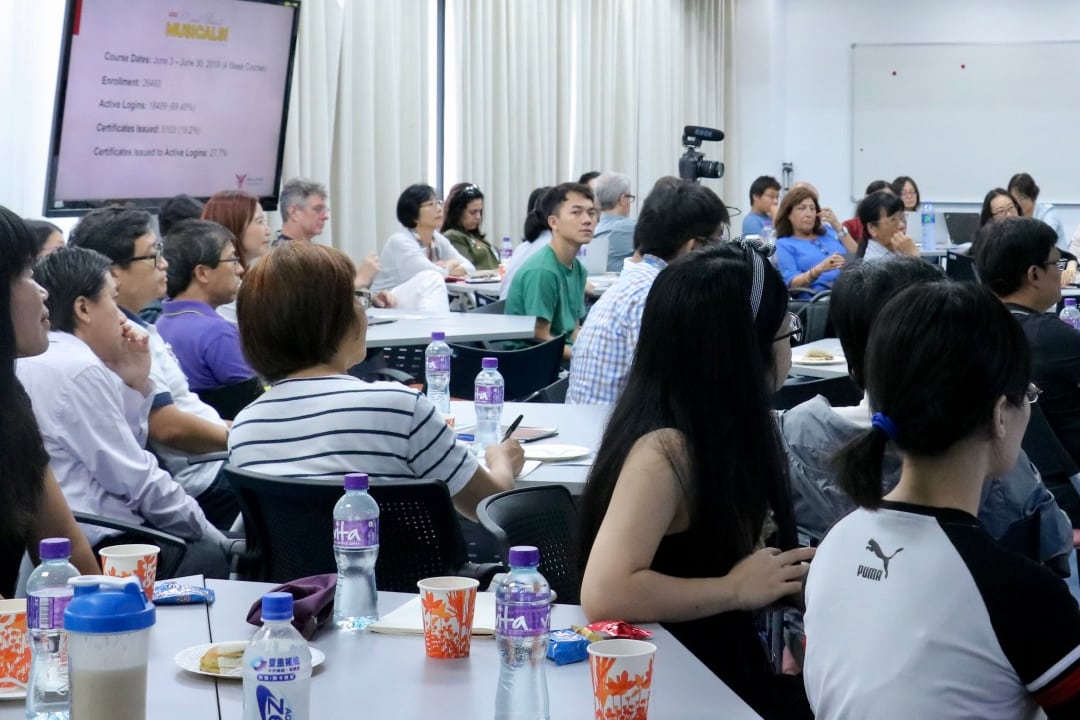
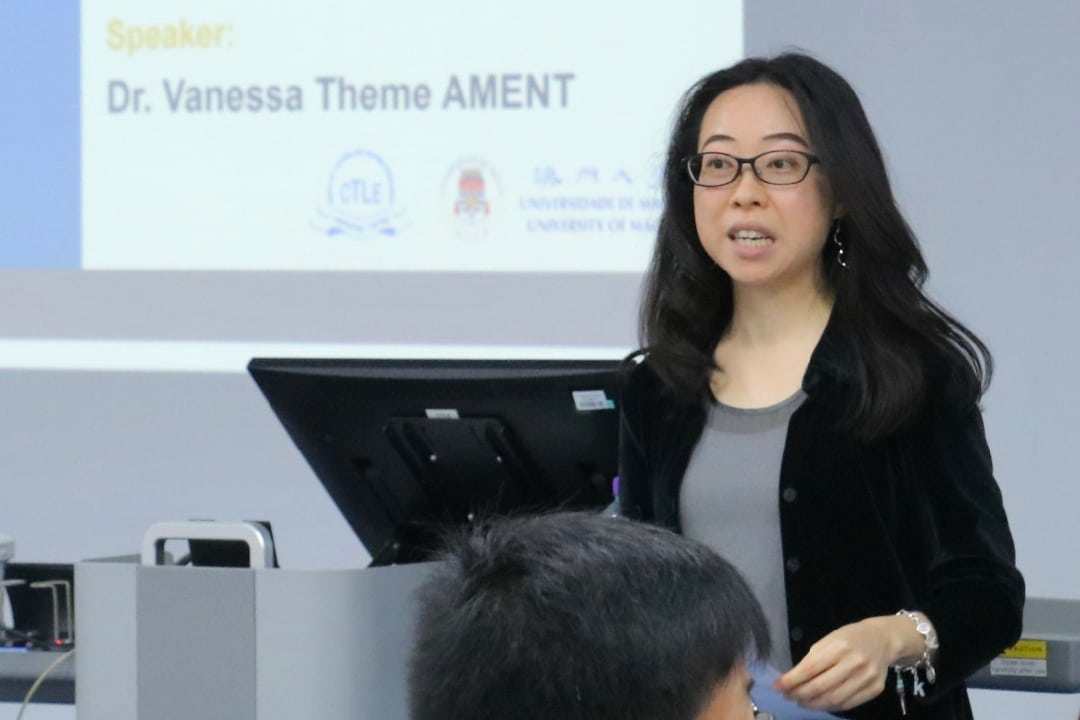
Leave A Comment
You must be logged in to post a comment.